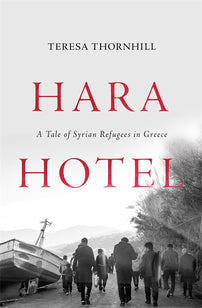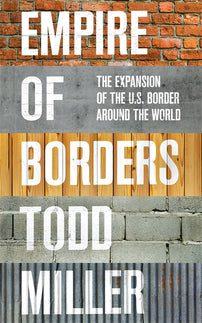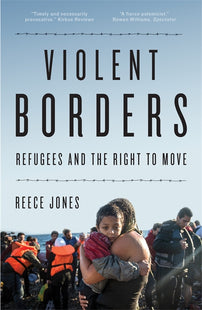Coronavirus and the refugees crisis in Greece
Thousands of refugees still remain in camps in Greece, like Moria on Lesbos. They now face the coronavirus crisis with no protection or help. Teresa Thornhill, author of Hara Hotel: A Tale of Syrian Refugees in Greece, tells their story of desperation in the face of the pandemic.

‘If the virus comes to Moria, in just one day, everyone will have it!’ Sitting in the doorway of her tent, Rima, a young Syrian mum, seemed relatively calm about the prospect when we spoke via a WhatsApp video call on Easter Saturday. Seated beside her, Rima’s husband held their smiley, two month old daughter.
‘Are you worried?’
She smiled with an air of indulgence. ‘After what we’ve been through in Syria in the last few years, it takes more than a virus to make us nervous.’ Then she sighed. ‘When my daughter was born, straightaway she developed a cough. She had to stay in the hospital in Mytilene for ten days. That worried us, for sure. In fact we’re still worried about her cough.’
Privately, I winced. How would a baby with a chronic cough cope with Covid 19? But Rima didn’t seem to make the connection.
Moria camp is a former military facility on the Aegean island of Lesbos with capacity for 2,800 residents; but at present it houses over 20,000 asylum seeking refugees from Afghanistan, Africa, Syria, Iraq and other countries, in conditions of appalling squalor. Typically, a family of five or six people lives in a space of three square metres. Approximately 1,300 share each water station. Forty percent of the residents are under eighteen, some unaccompanied. Like Rima, more than half live in rough tents and shelters in the ‘Olive Grove’, a hillside outside the camp’s walls, awash with mud and rubbish.
I asked whether Moria’s residents were following social distancing advice.
‘We can’t! We have to queue for food for three or four hours to get each meal, and you should see how close people stand to each other! And we know we should try to wash our hands, but it’s ten minutes walk to the nearest tap, and then you have to queue for an hour to use it.’
‘Do you have soap?’
‘I do now, because an NGO gave me some.’ She smiled. ‘But last week we had none, and no money to buy it.’
There’s a supermarket just five minutes walk from the camp, but UNHCR has stopped distributing the ninety euros per month to which, in ‘normal’ times, Moria residents are entitled. Without this cash allowance, most are unable to purchase soap, nappies and other hygiene products. The stopping of the payments is connected to the decision made by the Greek authorities to ban refugees from travelling the three miles into Mytilene, the island’s capital, where normally they would withdraw the cash from ATMs. Since Greece’s lockdown began, refugees are only permitted to go as far as the local supermarket. Rima tells me that she queued outside for six hours yesterday, but failed to reach the front of the queue before closing time. Greek banks have been invited to install an ATM in Moria, but none has opted to do so.

To the way of thinking of many refugees, of more immediate concern than the threat posed by the virus is the extraordinarily long wait they face for their asylum applications to be processed. Rima and her husband arrived in Lesbos at the end of 2019; they’ve been given a date in 2022 for their asylum interview. The delays have been compounded by the closure of the Greek Asylum Service, following a government fiat on 1 March that no new asylum applications would be registered for one month and that new arrivals would be deported.
The background to this high-handed and illegal policy is as follows. In late February, President Erdogan of Turkey announced that his coastguard and border guards would no longer impede the movement of refugees from western Turkey into Europe, abrogating an agreement that had held since 2016. Infuriated, the new centre-right Greek government used fears of coronavirus to justify setting border controls to ‘maximum deterrent’ level. They sent police, army and the Greek National Guard into the region abutting Greece’s land border with Turkey to fire teargas and, allegedly, rubber bullets at refugees attempting to cross. Some later alleged to Human Rights Watch that they were assaulted, robbed and stripped of their clothing by uniformed Greek personnel and beaten back into Turkey.
At the same time, the Greek government swiftly had the eastern Aegean islands surrounded with naval and coastguard vessels, to intercept refugees travelling on small boats. Four hundred and fifty such refugees, including many women and children, were captured and subsequently held on a ship in Mytilene harbor. During the day they were held in a pen on the dockside; at night they were returned to the hull of the ship where they slept crowded together, sharing just three toilets for the first few days. On 1 March, Greece’s National Security Council announced the “temporary suspension, for one month… of the lodging of asylum claims by all people entering the country illegally” and their “immediate deportation without registration, where possible, to their countries of origin or transit”. While Greece has the right to control its own borders, the EU Charter of Fundamental Rights and the Universal Declaration of Human Rights guarantee the right to seek asylum. Greece has no legal right to block people who wish to make asylum claims from doing so, even for one month; and no right to deport them before their claims have been considered.
In early March, Lesbos, the largest of the Aegean islands, already had a refugee population of 27,000 and its once-sympathetic Greek population had long since tired of the stream of new arrivals. When the number of new arrivals began to increase, just as the first cases of corona virus came to light in mainland Greece, some of the locals reacted with violence. Their anger was exploited by Nazi-sympathizing activists who travelled to the island from Germany and Austria, and by members of the Greek fascist party, Golden Dawn, who came from Athens. Refugees, doctors, journalists and volunteers were attacked, and many refugee-supporting NGOs were forced to close their operations. Medecins sans Frontieres felt obliged to suspend its clinic outside Moria for two days. A school for refugee children run by volunteers was burned to the ground. The crew of a human rights observation ship, Mare Liberum, were attacked by a mob in Mytilene harbour.
Compared to the vacillations of the UK government, the Greek government was impressively swift in its nation-wide response to the coronavirus, closing schools and universities and banning big public events in early March. On March 23, a full lockdown was imposed, under which everyone leaving their home is required to carry ID and a formal paper indicating the reason for their sortie, or risk an instant fine of 150 euros. On 5 April, the lockdown was extended by three weeks, to 27 April; but it’s unlikely to end then. Over the especially high-risk weekend of 17-20 April, when Greek Orthodox families celebrated Easter, the fine for breach of the lockdown was doubled to 300 euros.
For the refugees in Moria, although the lockdown put an end to the racist attacks, it has taken some time for most to grasp the new, equally serious threat they face from Covid-19. Initially, some thought talk of the virus a joke, or even a conspiracy dreamt up by Europeans living in luxury and freedom. A Syrian friend of mine who, on my advice, wore gloves to go shopping in late March, was laughed at by her friends. But news moves fast by social media and many of Moria’s refugees now live in fear of falling sick, for if the virus finds its way into the camp, they will face their fate alone. Mytilene has just one small hospital, with a total of six intensive care beds; and it’s not clear that Covid-positive refugees who become very poorly will be taken there for treatment.
Although there are no known cases of the virus in Moria at present, there can be no doubt as to the extreme vulnerability to the disease of many of its residents. At the end of the long, wet, island winter, respiratory infections are widespread, ranging from the common cold and cough to bronchitis and pneumonia. Children, pregnant women and the elderly live in wet tents with inadequate clothing and damp bedding. Diarrhoea, scabies and head lice are the norm. Poor nutrition and the impossibility of getting adequate rest weaken people; and to those factors must be added the impact of despair and depression, particularly severe amongst children. In the words of a German MSF doctor who has worked in the camp recently:
‘…we're dealing with a crisis, especially a mental health crisis, that we've rarely seen before anywhere in the world. Children are committing self-harm, young children are talking about suicide. They stop eating, stop speaking. We can treat them for the moment at the hospital, but then they always have to go back to where they came from, and that makes them sick. That problem was there before the corona threat…’
For some weeks, in view of the crisis, MSF and other NGOs have been calling on the Greek government to evacuate Moria and other camps on the islands and Greek mainland. Progress has been very slow, but on 16 April approximately one thousand refugees were transferred from Moria to Athens, which will have reduced the camp population to 19,000. Meanwhile, although Greece has notably less cases of Covid-19 than many wealthier European countries including the UK, the numbers are steadily increasing. On April 22, Greece had 2,401 confirmed cases, with 121 deaths. Only five cases have been reported thus far in Lesbos, with a single death; the first case, in early March, was a female supermarket worker from Plomari, who is thought to have contracted the disease during a group tour of Israel and Egypt. On the mainland, the picture is bleaker, with outbreaks in two refugee camps. In Ritsona camp, to the north east of Athens, 20 residents tested positive on 2 April, resulting in the camp being quarantined. In Malakasa, also north east of Athens, a single case of the virus has led to the camp being placed in ‘full sanitary isolation’.
In the five years since the so-called ‘refugee crisis’ began in earnest, Europe’s claim to be a bastion of respect for human rights has become untenable. Many European states which, back in 2015, agreed to take in tens of thousands of refugees under the ‘Relocation’ scheme failed to deliver, leaving Greece, Italy and Spain to bear much more than their share of the burden. Today, with UK and European leaders struggling to deal with the national crises unleashed by corona, there is no attempt to devise a Europe-wide strategy to protect refugees. Europe seems prepared to countenance the prospect of thousands dying of the virus in conditions of indescribable squalor.
Every couple of days, I talk by WhatsApp with my friend who wears gloves to go shopping. She already has her refugee status in Greece and lives in a house in Mytilene that she keeps spotlessly clean. For her, the main worry is less her own health but that of her parents, living as IDPs in Idlib, Syria. There, a population of two million lives in ruined towns and villages where the medical facilities have been destroyed, caught between the forces of Assad pressing on them from the south and east and Turkey from the north. At present a ceasefire allows the spring birdsong to be heard and the virus remains at bay. She holds her breath.
[book-strip index="1" style="display"]Teresa Thornhill is a linguist, writer and child protection barrister with a special interest in the Middle East. Her previous books include Sweet Tea with Cardamom: A Journey through Iraqi Kurdistan and The Curtain Maker of Beirut: Conversations with the Lebanese. She is the author of Hara Hotel: A Tale of Syrian Refugees in Greece
1. According to Aegean Boat Report, 860 refugees arrived in Lesbos in March 2020.




